I have spent years dreaming of being a dressmaker and I am finally moving ahead with it….My Question: Now What?
I have the serger and sewing machines, scissors and a table, I have some other odds and ends I know I will need, but what are some things you wouldn’t typically think of? Dressmakers Curves? Tailor’s Chalk?

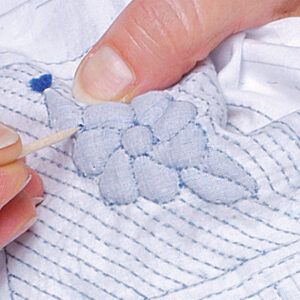
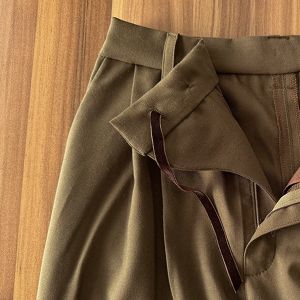


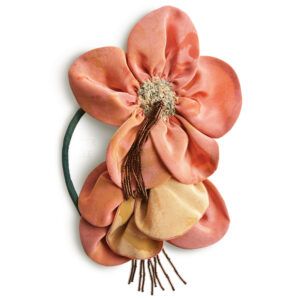

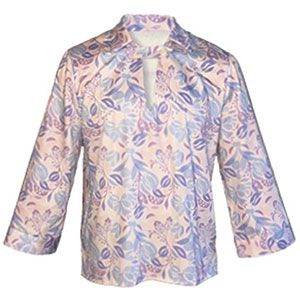
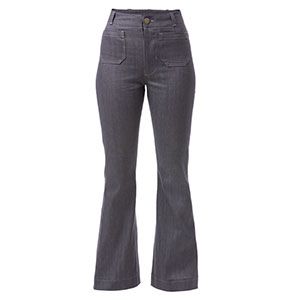
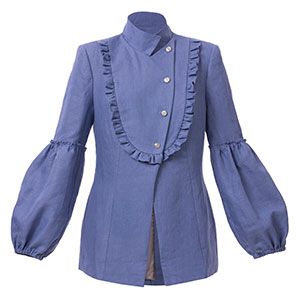
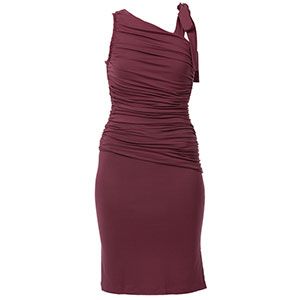
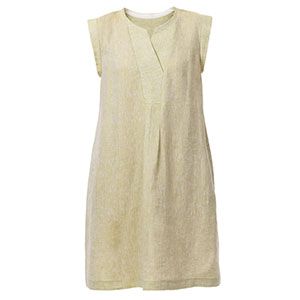
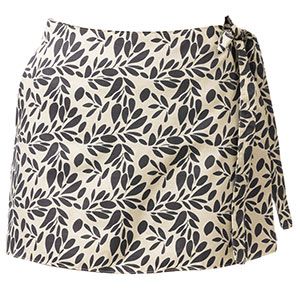
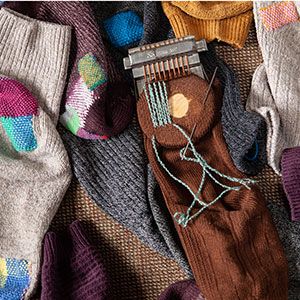

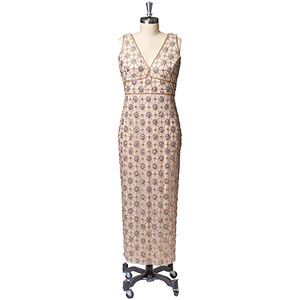
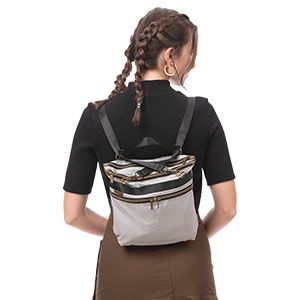





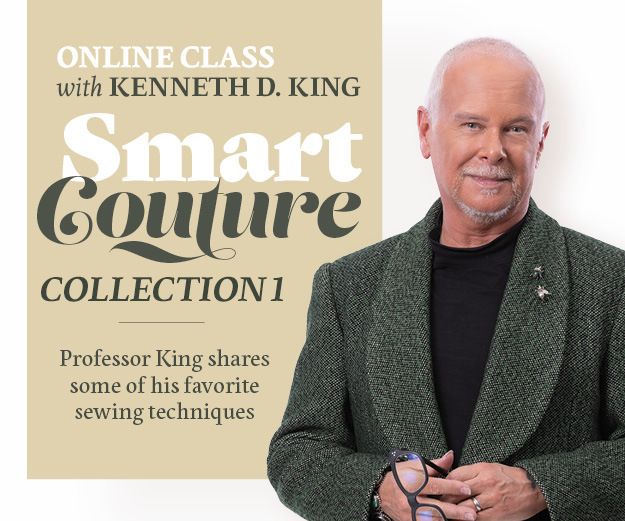




Replies
I may be stating the obvious... but anyway...
1. grid board - cardboard that covers (protects) your table and has inch marks and curves and scallops and diagonal lines. It folds up for storage or transportation, but mine stays parked on my cutting table.
2. Shears - very sharp, cloth ONLY! (and a good pair for paper)
3. Marking tools - you may find that a couple different types are handy to have on hand. I like Chakoner for lines and a thin chalk stick in a holder for dots and such. Try out a water-removable marker too.
4. Organizational method - you will find that spools of thread and other notions seem to multiply out of control, so think about how you are going to sort and store your stash so that it can be found when needed! There is no one right way to do this, just what will work for your style and available space! (hint: see-through containers work well)
5. Do not try to buy everything at once, add to your tool-kit as you have a need for it.
Try searching the Archives here for tips and tools to get some ideas of what is available and what can be made to serve a double function!
Hope this helps,
Becky
Thank you for your help...My all-of-a-sudden supportive boyfriend has offered to build shelves and help me set up a yard sale to clean out... and even to help take the things that don't sell to donate to charity. (he gets a gun cabinet and lunch out of it) He even is offering to go out and advertise with me when the time comes (He remembers all of the door-to-door flyers he made me hand out to advertise tree work....lol)
But he has made this an even more wonderful experience for me....I couldn't have done it without him. We live in an effiency apartment at the moment, does anyone have any storage ideas for a cramped space?
My latest favorite storage solution is two 5 drawer plastic rolling cabinets. They store all my notions and sundries such as elastic, buttons (sorted by color into "snack size" zip lock bags and threaded together by style), bias tapes, trims, lace, ribbons, yarn, small miscellaneous sewing tools that are not often used,etc. This is so amazingly compact and efficient and I wonder why I didn't do this years ago! Found at Wal Mart for about $12 each. I also purchase super size zip lock bags to store fabric in. While I have quite a few bolts or rolls of fabric, most of my stash is smaller cuts and folding them into a zip lock keeps it clean, visible and even has a white area on the front to note fabric content, yardage, project you had in mind for it, and, if you wish you can slip buttons, thread, zipper and a pattern into the bag along with the fabric so your whole project is "pre-organized" for you. These are easy to stash on shelves or into clear stackable storage containers if you have more fabric than makes good sense (like moi!). A cutting table with shelves underneath is efficient use of your real estate . I use three bookcases on the outer edges of the table surface which leaves invisible storage space underneath as well to stash away big stuff you don't need to trip over. (like bolts and hanging racks not in use)I also use a bookcase with doors to hold my large industrial size thread spools stacked by color of course. And a girl can never have too many shelves! Hang them everywhere.The best tool for a cutting table is a piece of "white faced building board" which can be purchased at lumber yards for about $10 for a 4x8 sheet. (It is a pressed board material that acts like a bulletin board...easily accepts punch pins, etc.) Usually they will cut it for you to any size you may require to fit your table. It is the perfect surface for a patternmaker/dressmaker to work on. I cover mine with white pattern paper as well since the manufacturing process of most building products leaves surfaces that dry out the skin of your hands drastically. Once you have worked on this surface you'll never be without it. I also have a smaller, 2x3 or 3 x 4 ft. pc. as a portable work surface that I take to classes, etc.Hope these ideas help!
Someone mentioned the carts with drawers. Before you buy one, decide what you're going to put in the drawers, etc. because they come in a lot of different sizes, styles. I got mine at Office Depot for about the same price and they have shallow drawers. I notice some places have some with even more shallow drawers that are for scrapbookers but they aren't right for me. I have 4 and love them. I like the fact that I can see through the plastic and know what's in it. So many things I use are small, attachments, needles, pins, bobbins, etc., and they get buried in an ordinary depth drawer. This way, each thing has its own place. The top is a divided tray in which I keep my rippers, pincushion, etc.on one. I can shove them out of sight, or pull it over to where ever I'm working. One has beads, sequins, etc. and I can sort in the tray and watch TV. One has paint brushes, colored pencils, )
I don't remember if anyone mentioned a really good quality lighted magnifying glass. I have one attached to my table and it's great when I'm ripping out stitching on a delicate fabric or any fine work.
Don't forget to keep checking out the goodwill/recycle shops and garage sales for sewing items. You can add quickly to your sewing supplies without to much invested. I have gotten alot of stuff at these places. Even bought a real nice second sewing machine in the cabinet,( sew like a dream) for $25.00. It was in an estate garage sale and the kids didn't sew. Lots of times you can get bias tape, twill tape, measuring tapes, rulers, pins, threads ect, ect, for pennies compared to what they cost in a store, and don't be afraid to think outside the box. I have a hammer chiesel,bread board&forceps in my sewing room. They work great.
Indeed;
Not to be rude, or unsupportive, but if you do not already own tailors chalk, or know how to use a dressmakers curve, then maybe what you need most is more experience. Perhaps you could check your local community college for some courses, or work under a tailor for a while.
Try making some things for your friends first just for the cost of the materials. If you are able to make their fittings comfortable and accurate. Guide them towards the appropriate fabric for the projects at hand. Then provide a good quality product in a timely fashion, then word of mouth will begin to spread and work will start to come for you.
Just remember that when entering into a business, if you start wrong you never get another chance. Please don't give up on your dream, but also, please don't call yourself a dressmaker just because you can sew.
Beyond shears and tailors chalk, you need to consider where you will take measurements. This is a fairly uncomfortable process for the client to begin with, and can you imagine how you would feel standing in a leotard in the middle of a strangers living room. Is your BF going to come in at an inopportune time? Where will your clients change for fittings? How will you keep your space organized? Clients do not like to see their fabric on the floor FOR ANY REASON. If you have pets or are a smoker, don't even consider working from home, smells that you won't even notice will seep into the fabrics.
I am sorry that this sounds harsh, but sometimes it truly is nicer to be honest. Grow into your dream, don't force it. After all, as you learn why you need these tools, you will be drawing yourself that much closer.
Edited 4/24/2007 4:23 am ET by tmorris1
I have tailors chalk and have used it, I have made a few dresses and many other things, I may be young, but I got my first sewing machine before I was four...and was able to use it to make pillows and such. I have done some upholstry work for my aunt who owns a business doing it. I am learning as I go for the most part and have dabbled in pattern drafting and am looking for a couple of classes in my area...I want to start the business, but I recognise my skills are not compareable to those of a "seasoned" dressmaker. I am hoping to move to a larger space, but would still need to assess the privace issue. Nothing Harsh about it, I know it is all a part of the reality of it all. I know I still have a long way to go, but I have the oppertunity to purchase things now, which I am afraid will be a short-lived luxury. I am hoping to have everything I will need long before I am ready to hand out business cards. In fact, I am going to be taking a couple of classes in the near future...I am just concerned with the literal pieces of equiptment everyone recmmends.
My dad has agreed to use the money he had saved for school for a serger and the other things I will need, but I have to get everything at once. I am currently working for my BF's tree service (not fun work) to pay for classes until I feel comfortable enough with my skills to go off working on my own. I suppose I left that out and would have been pertinant information for everyone....I am hoping to move to the bigger place a few months after I get my serger and everything else...So I will need to store it where I am then in the other place.
I hope this helps....sorry I didn't explain better from the start...Thank you.
I am so glad that you didn't take my advice the wrong way. There are many things that you need to consider before you start a business from home. If your father is willing to use your school tuition money to buy sewing equipment, then it sounds to me like you should not be in a rush to spend it all. Put the money in a good savings account, and there will just be more of it when you are ready to start your business. Lay yourself out a plan including goals, and put a timeline to these goals. Also, you need to consider the effect that your home business will have on those around you (especially if you live in an apartment building) If you have clients coming to your home, are the neighbors going to complain? If they do, and the tax man finds out that you are "simply making garments for people," you can get in big trouble. What kind of zoning your home has can play a big part of whether or not your business will be successful. Have you considered what you would do if some horrible accident happened? I had a friend that was altering wedding gowns at home. A pipe broke in her house and flooded everything, ruining 3 dresses. She had to replace them out of her own pocket to keep the brides from suing her.The cost of all of those little sewing notions is really quite small, but when the time comes to turn pro, costs will add up that you have never even considered. Save the money, and use it when it truly will be useful.
tmorris1 gave you really great advice and may I add a little emphasis? Just for the record, the best thing you could "buy" is a good patternmaking or fashion draping course and perhaps a tailoring/sewing skills class. And if I didn't mention it earlier, the ultimate workroom tool is a good dress form. (But that's a whole other discussion!) You didn't say where you were writing from...perhaps if we knew, I or others might be able to recommend a great school or classes that have been beneficial for them. I applaud your ambition and desire to pursue your dream. Always do what you love...it makes for a happier life.
I applaud your dream and the encouragement your father has given you. I also say save the money for now and invest in a few classes as well. Owning a family business that we started about ten years ago, may I suggest one of those "classes" be some basic business accounting classes. You can get some great mentoring and lessons from SCORE, a group of retired and active business people who help those starting up even the smallest of businesses. You will need a good accountant who can tell you how to set things up and avoid tax hassles and permit problems. This may be way more than what you are currently thinking about but it is necessary if you are going to start a legitimate business where you make money and pay taxes. Our accountant has been a godsend at times and has info on things we never dreamed about but needed to know. You may also discover that the type of sewing you want to do will change over time. Do you want to tailor, make gowns, specialize in weddings, heirloom children's clothing (moi!), etc. I think the advice to make friends some garments for cost will point out where you need to strengthen your skills and is priceless info from Tmorris1. I wish you the best. Follow that dream!
Hi solosmocker...
Your message was addressed to me rather than the young lady who began this thread. But since it was posted to all I'm sure she will see it. Your advice too is excellent and one she shouldn't ignore once she is in a position to start up her business. There are a lot of smart women on this board!
One of my pet peeves with design schools/colleges is that most don't offer business courses designed for the entrepreneur and most young people are intimidated by the sales/marketing/management skills necessary to be successful...not to mention bookkeeping (which you mentioned quite eloquently). Too often, young entrepreneurs go into business thinking their design ideas and love of the medium will open the world's door into their studios. It takes a lot more than talent to be successful.
Best,
artfulenterprises
Edited 4/25/2007 1:11 pm ET by artfulenterprises
I hope within the year to be prepared to open the doors....I am getting renters insuance,but I have not looked too much into policies yet, as most of them are low cost and only insure posessions, so i am also insuring with business insurance to cover more. I am only an hour train ride from the art institute of Philly, but I have lots of local talent to use to my advantage. I have spoken to two professionals in the local area...one is a PACC seemstress and the other (my aunt) is in upholstry, but makes and fits clothes as a hobby. My parents have two businesses and an excellent bookeeper & accountant. I have recently been helping BF start a business and have just recently had to deal with the oh-so-fun processes of fictitious names and tax ID numbers. I hope to take a course for taxes and such, but had accounting in High School.
How would I get in touch with "SCORE"???
I don't know about zoning in my area, that is a good idea, I will check up on that. My future apartment has it's own entrance and most of the inhabitants of the building are family members, If they have a problem they will deal...lol. Also on that topic, I was told that The Babylock Evolve Wave I am getting is one of the quietest machines out right now...Can anyone confirm or deny?
My focus is evening wear. I would like to start with prom dresses and such, but hopefully move on to wedding gowns and bridal wear. I want to get more classes in berfore I move into that area. I have been sewing dresses for 7 or 8 years now....believe it or not, I started young....mostly helping my grandma do it then working on my own. I have spent a long time focusing on my faults and working to make them better. I was thinking about just renting an office to do my work, but the one I looked at wasn't equipted with a bathroom....It has room to put a changing area in for customers, but it isn't possible to equp it with a bathroom, so I am not sure if I want to take it....It is close to my apartment, but customers would have no place to go. I still have a lot of thinge to look into with it, so I'll remain undecided for quite some time. I may just use it for a sewing room and do all of the paperwork elsewhere. Any thoughts?
With regard to the Babylock Evolve Wave........I have the Evolve......the model before the Wave came out. Nearly the same machine.......8 threads, yada, yada, yada....... I think my Babylock is a bit noisier than my Elna 744DEX. The Elna is just especially quiet and I don't think the Babylock is really noisy at all. I think you'll like the machine..........threading is a dream and the instruction booklets are great.
You have a huge undertaking.............just make sure to 'dot your i's and cross your t's' with all the legalities and you should be fine. Sounds like you have quite a lot of experience for one so young.
One bit of advice that others may argue with.............follow your dream now while you're young.........you have less to lose if it doesn't pan out as you hoped. Once you have a family and lots of obligations it is much harder to take that 'leap of faith'.
Follow your dream..........and good luck!
Crazy
You certainly have a wonderful resource in your family. With that and their encouragement I am sure you will do wonderfully. SCORE stands for Service Corps of Retired Executives. There should be a group in most cities over 150,000. My father was was in that group years ago but also went into business for himself so was not what you would call retired. I know they are still around. I hope you can find a group to help you. Some states also have micro business coops. My former state, NH, had these and I only know what I have heard on the radio and in paper. Very small loans were given out and groups met to discuss marketing strategies as well as other business issues. This may have been a state program. I can't remember but I do remember it sounding like a great program. Wish I could tell you more. solo
Thank you, I'll google it to see what I can find. I think it would be nice to get in touch with local people that can help me learn these things. Thanks again.
My number one recommendation: Kathleen Fansenella's Fashion-Incubator. Her site is largely directed to commercial production, but I have learned things from her that I never saw elsewhere, and after 50 years of sewing garments. Also, try to buy her book (I am saving up for it right now).
Sewing tools: an extra long plastic carpenter's yardstick. Mine is 6 feet and I got it at Lowes. Also have a pulley arrangement over your sewing machine so you can put those long heavy dresses on it and lower them just as much as you need to reach the needle. Mine has an eye on the ceiling, 1/4 inch nylon cord for the rope and a bracket right where I can reach it. This will avoid a lot of wear and tear on your specialty fabrics and also you will not be worn out from lifting yards of heavy fabric over and over.
Finally, you are on the right educational track; learn everything you can, and then when your opportunity is here, you'll be ready. God bless you. Galey
What a system!!!! I am looking into the book, thank you!And thank all of you for all of your wonderful suggestions. I am moving along well, but still trying to find out what all I will need.
One thing mentioned to me was a digital camera.....I was wondering if I could get a couple of opinions on that Idea.....I could see many ways it would be useful, but I don't want to waste my money and find it is just a luxury that I won't use. I am also looking into steamers ....another great suggestion I got. Any Ideas?????
Edited 5/1/2007 2:11 pm ET by ineedaserger329
Dear 329:
Wishing you sincere good luck with your business. I have been approached to sew for friends, neighbours, friends-of-neighbours, etc., but have been able to sidestep most requests - I sew only for people I really, really like and usually waive payment. I find a lot of people seriously undervalue sewing experience/talent and the actual time involved to create a well-made and well-fitting original garment. The convenience of being able to work from home doesn't justify ending up with 3 bucks (or so) an hour that most people's payment expectations translate to.
May I offer a small bit of advice if you are planning to eventually sew speciality-occasion gowns? Some years ago, a seamstress friend of mine teamed up with another seamstress/notary public. To minimize problems with cash flow and to ensure they actually got paid for work they had accomplished, they developed a one page 'contract' (between themselves and the client) that incorporated a schedule for fittings, an overview of the garment's progress and the payment schedule required. If you are interested, I can dig it up (this may take a day or 3) and send it to you.
Regards,
Kay
Dear Kay, I would love to have it if it isn't too much trouble!!!I have been trying to figure out just what to put in a contract, thank you!-Amanda
Dear Amanda:
Sorry I took so long to get back to you re: sewing contract. It took me longer to find it than I thought. On a positive note, I finally got around to clearing up my "To Be Filed" box. The gist of the contract is as follows:
SALES AGREEMENT
This agreement is designed to help describe the garment construction process, to set dates for completetion and to aid in identifying what commitments are required by (Name of Seamstress) and the client.
This agreement (as outlined below) is between:
Name of Seamstress
Address of Seamstress
AND
Name of Client
Address of Client
Fitting Process and Associated Costs
All prices quoted do not include fabric, notions or patterns. These costs will be incurrred by the client.
Complimentary consultation: To determine fabrics, pattern design and completion dates. An approximate quotation will be provided and a completion date set. Approximate Price$___.
First Fitting: To fit the bodice properly (bust, darts, zipper etc.) The first installment of 25% of approx cost will be due : $___.
Second Fitting: Bodice Refit. Some body shapes require an additional fitting to ensure a correct fit before the sleeves can be added. If bodice work goes well, the second fitting may be omitted.
Third Fitting: Sleeves and skirt will attached. Garment wil be ready for an overall fitting. On a beaded gown, some beadwork may be started. The second instalment of 25% of approx. cost will be due $___.
Fourth Fitting: Allow at least one week for hems to settle before alteration. Garment will be ready for hemming and any final alterations identified. The third installment of 25% of approx. cost will be due $___.
Final Fitting: To try on completed garment and have portfolio pictures take. Upon completion of garment, the final payment of any and all outstanding balances must be made before dress is released. Final payment due $___ + ___extra items (notions, dressbag etc.)
Additional items to be noted:
* Garment wil not be released before outstanding balance has been paid in full.
* 24 hours notice is required for appointment cancellation. If notice is not served, there will be a $10 missed appointment charge.
*Please bring proper undergarments to ALL fittings, and appropriate footwear to your 3rd, 4th and final fittings.
*All prices quoted do not include fabric, notions and pattern(s). These costs will be incurred by the client.
Wedding/Event Date _____ Date Started ____ Date of Completion ___
All parties listed below agree to the terms and conditions of this agreement. A signature below acknowledges having read and understood all commitments by both parties.
Date ___ (Seamstress Name) ___ Client ___
Amanda, please note that I don't know if this is a legally binding contract or not in its form and content (I'm Canadian, by the way). What it does do (in my opinion anyway) is help to establish to your client that your sewing business is indeed a business and that there are expectations of and requirements from and some 'protection' provided to both parties. Please note/excuse any spelling errors, and if you decide to utilize a version of this agreement, get it produced to look as professional as possible (logo/letterhead, etc.). Good Luck!
Regards,
K
Thanks So Much!!!
The idea of a contract is good. And don't undersell yourself...Custom is just that and deserves to be compensated fairly. I remember years ago making a 3 piece wool suit for a client who then complained about the price. My reply to her was, "if you can find your size, in the perfect color and perfect fit in RTW, then be my guest because if I sew for FREE, I sew for ME." Another time, I had made a pleated wool skirt for an out-of-town client. She came in for a fitting and back for the skirt and paid with no problem. Then she wanted a matching jacket and a also a wool vest for her husband. If I remember correctly she came in for one fitting and then I shipped the finished jacket and vest C.O.D by UPS. A week or so later, the package was returned to me marked REFUSED. Angry that I was out of my time and money, I tossed the un-opened package on a shelf. Several days later, I get a telephone call from the client asking when I would be sending the altered jacket back to her. Excuse me....you refused to accept the package! "No," she said, "While the UPS driver waited, I opened it and took the vest out, tried on the jacket and put pins in where I want you to take it up. If you will send it back, I will mail you a check." Well, I reported to UPS driver for letting her open the package without paying the COD charges and he came very close to losing his job. And only after I received a check for payment in full and it cleared my bank, did I send the jacket back. Now I do sewing and alterations for a choice few who value my talent and expect to pay for it. Just a few weeks ago, an acquaintance at church came to me and asked me to hem some slacks and "I'm not paying over $3 per pair" she added. I smiled sweetly and told her my schedule was too full and she'd have to find someone else. Sorry, this is so long!!!
Good for you!!! Sewing is a talent and 'fitting' is truly an art. I have made things for people but only people that I wished to sew for.......people that I knew to not be 'picky'!! I never have sewn for pay really and I guess I don't care to. I'm sure I would find all of the ones like you mentioned..........I'm a soft-touch and word would get around quickly!! I would end up feeling bad/giving in or something and then would hate myself later!! I'm glad you were able to stand up for yourself.
K
Sorry it has taken me so long to reply.....I agree completely, in Highschool, I made a few dresses for friends and I had some not end up wanting the dresses, I kept and re-sold them keeping the extra fabric and such...I also started writing a contract, between friends and myself, but it was nothing to brag about, it just mentioned that they paid for supplies prior to me starting the dress and if they didn't pay within a month of completion, I could re-sell it for a profit without refunding their money.......
Maybe I am getting into the wrong business because I HATE doing alterations for friends and family. My S-I-L always wants me to alter things for free or next to nothing, but I tell her I don't have time. It seems the closer to family they are, the cheaper they expect it to end up.......
See, I don't mind it being long, I usually talk a lot.....
Just reading through this thread of conversation it has occurred to me to offer another perspective on your plans. I heartily applaud your ambitions and the fact that you are thinking through the ideas of renting separate space, paying insurance, etc. While I don't know what kind of cllientele you may already have (meaning what kind of cash flow you have from your business!) I would suggest you hold off on investing in some of the "trappings" of a small business until such time as the demands of your business actually require them. Believe me, you can spend a LOT of money unneccessarily on such things. Many of the so called "necessary" permits and licenses, insurance, etc, don't really apply to a cottage industry until you are actually making real money. Let each commission you take, drive the next investment you make. It helps you avoid the financial disasters that can occur with starting up a small biz. SCORE is part of the Small Business Administration. My experience with them has been less than helpful (Both SBA and SCORE) But, check it out for yourself as you may find a jewel out there. Good luck!
Edited 6/3/2007 10:28 pm ET by artfulenterprises
I think I would add "If not paid in full by xxxxxx date, item may be sold or discarded and no refund of any kind will be provided to original customer for fabric, notions, etc. Such as they have broken the contract by not paying you the full amount in a timely manner.
Possibly a notation regarding excessive fittings above and beyond original agreement. (weight fluctuations that are extreme, etc.) Not being responsible if it cannot be altered beyond a certain size increase beyond your control.
This may seem harsh, but your time is valuable.
This post is archived.